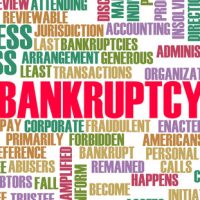Bankruptcy Discharge or Dismissal?

For individuals who want to reset their finances and get a fresh start, bankruptcy can be a great opportunity. But the process can be demanding, with a number of regulations that must be followed. If everything goes according to plan, debt can be discharged. If rules are ignored or broken, the case can be dismissed. If the terminology has your head spinning, relax and understand that your experienced Miami bankruptcy attorney at The Law Office of Julia Kefalinos has explanations for it all!
Bankruptcy Discharge
The discharge of debt is the ultimate goal of your bankruptcy filing. It means you aren’t accountable for that debt any longer, and creditors will be off your back. No more threats of lawsuits, no more calls and letters wanting your attention.
Bankruptcy Dismissal
A less-than-ideal outcome in a bankruptcy filing is a dismissal. That means either you or the bankruptcy court has stopped the process from going forward. It could be because you changed your mind and backed out, or it could be because rules related to the process were violated. In any case, the automatic stay that kept creditors off your back is lifted, and they can start their collection efforts again. There is a difference between voluntary dismissal for Chapter 7 versus Chapter 11 filings, however:
Getting a Chapter 7 voluntary dismissal is a lot tougher than getting one for a Chapter 11, because the case is much shorter in the former. There is no benefit to unsecured creditors in a Chapter 7 so the only way they can collect anything is through bankruptcy. That means a dismissal is unlikely to be granted. Because a Chapter 13 takes a matter of years to complete, it’s much easier to achieve a voluntary dismissal. This might occur after a major change in your income leaves you unable to meet the required payments on the Chapter 13 schedule. A dismissal allows you to start over again and extend the length of the payment plan at lower payments.
Requirements for Bankruptcy
A trustee can dismiss your bankruptcy involuntarily for a number of reasons:
- Failing to be honest with your bankruptcy attorney;
- Failing to pay court fees;
- Neglecting to submit required documents;
- Failing to attend the 341 meeting of creditors;
- Failing to make required alimony or child support payments;
- Failing to complete credit counseling course;
- Failing to meet the means test.
Getting it Right
If you’re to the point that bankruptcy is a serious consideration, make sure you go into it understanding exactly what’s happening and what your responsibilities are. At the Law Office of Julia Kefalinos our knowledgeable bankruptcy attorneys will take care of your questions. Schedule a confidential consultation in our Miami office today.

